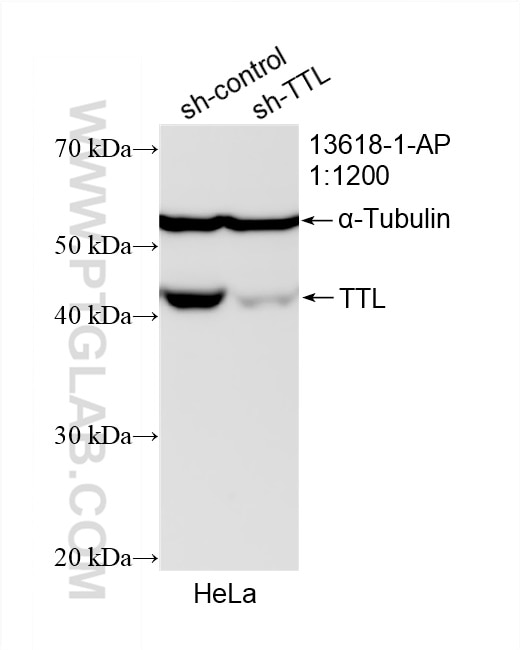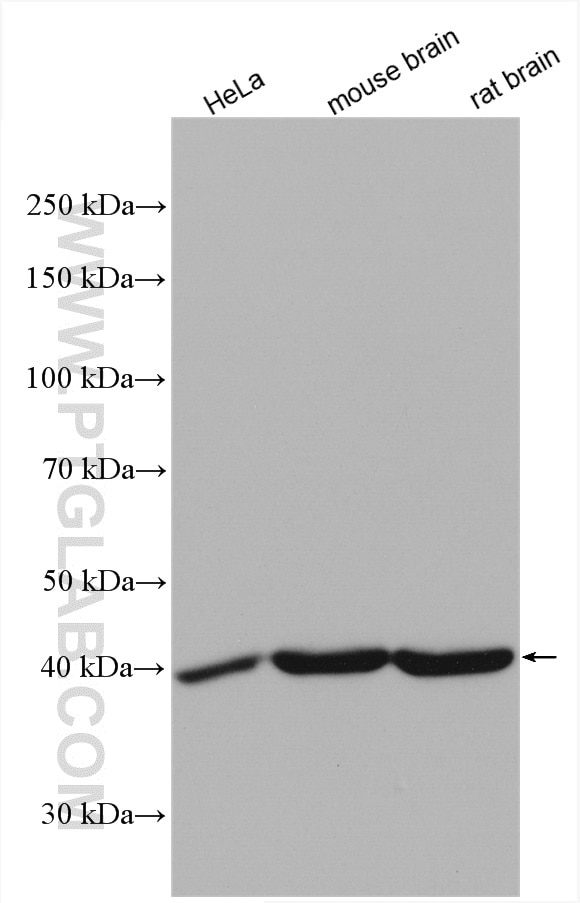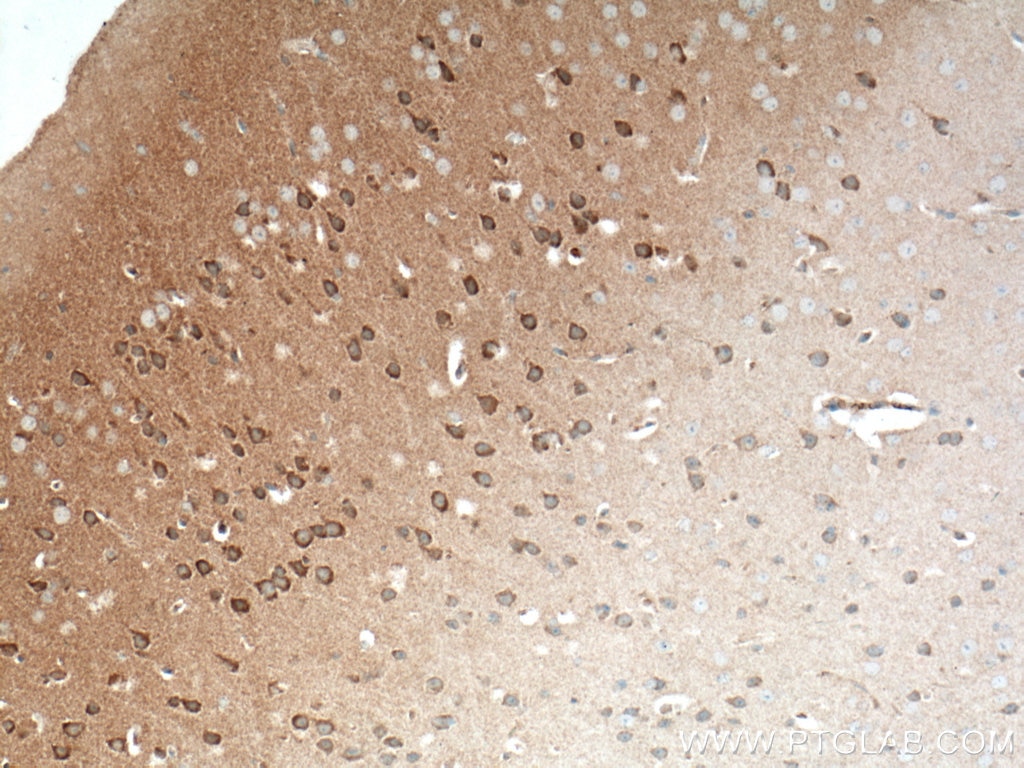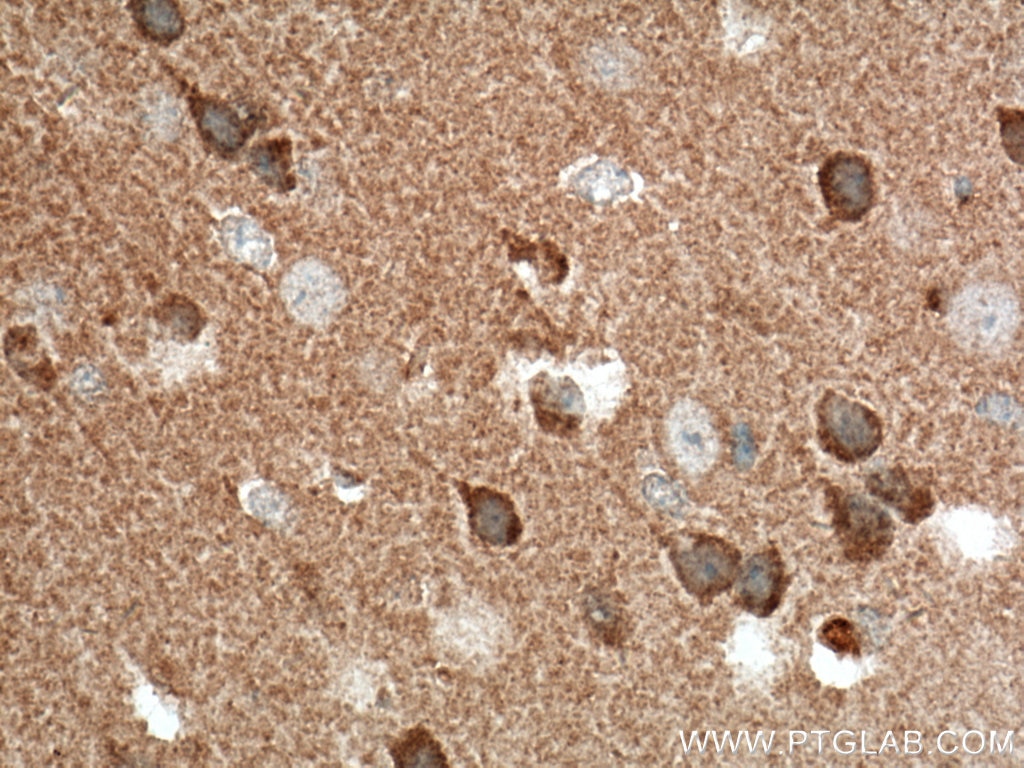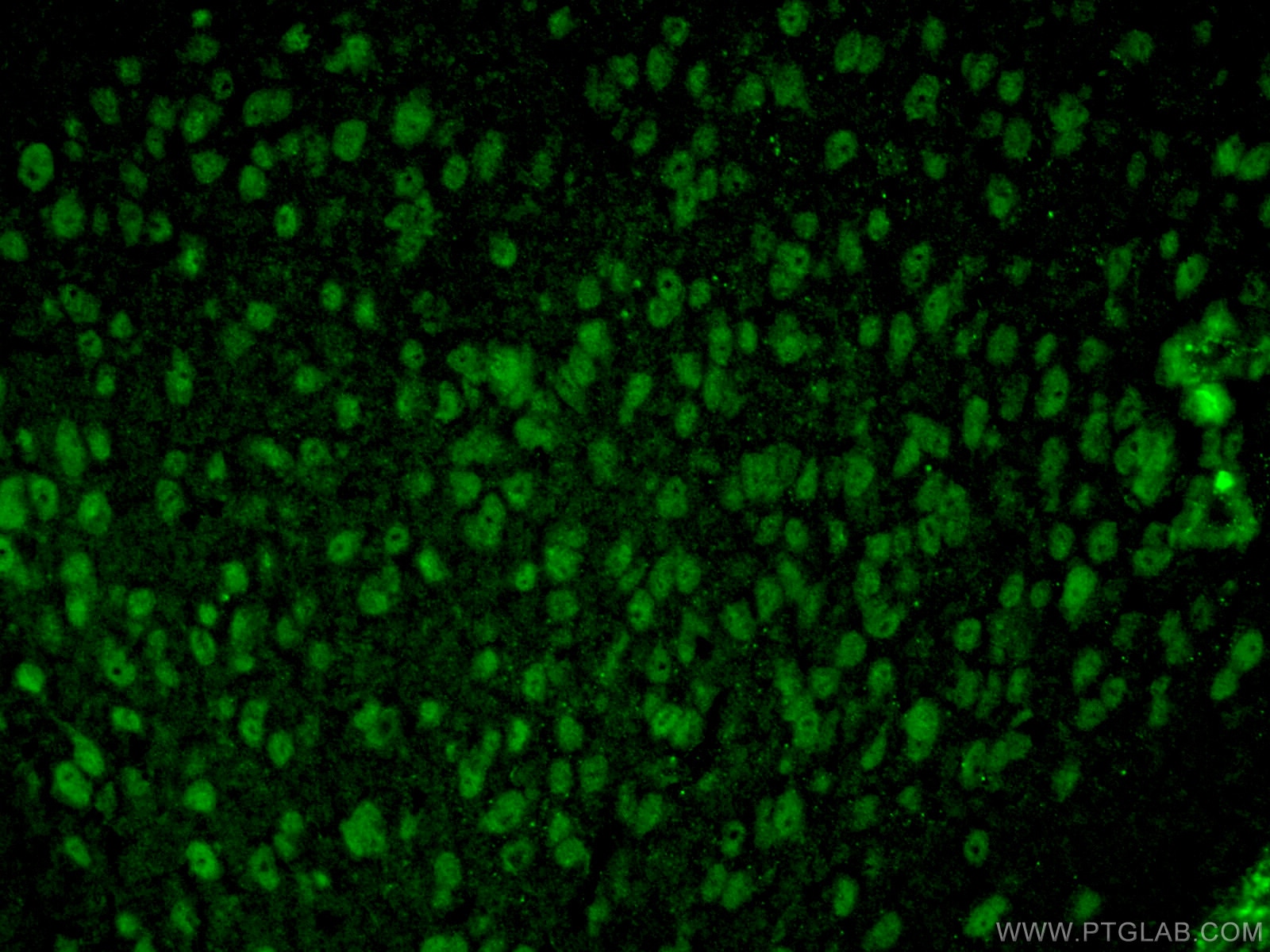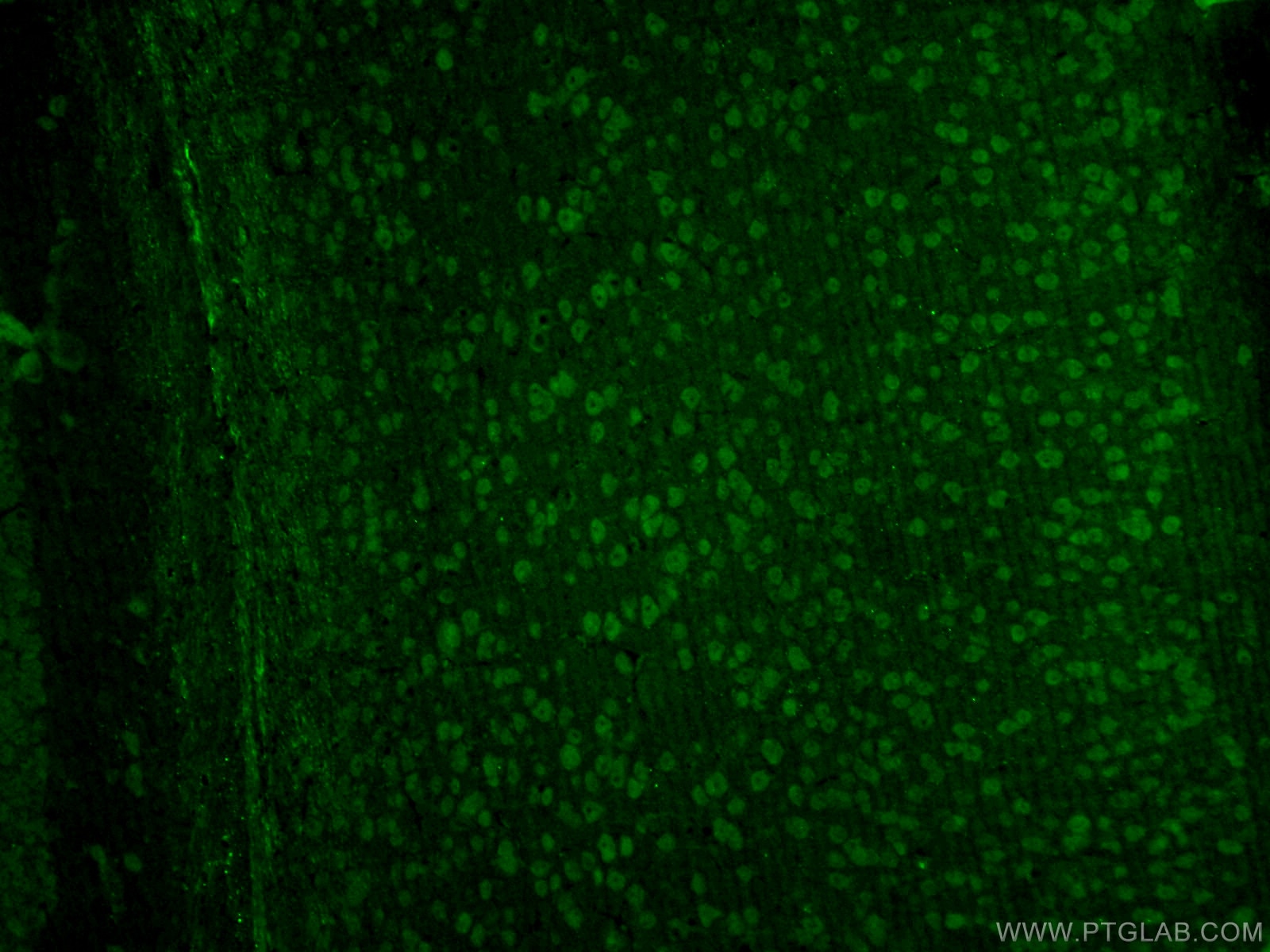- Phare
- Validé par KD/KO
Anticorps Polyclonal de lapin anti-TTL
TTL Polyclonal Antibody for WB, IHC, IF-P, ELISA
Hôte / Isotype
Lapin / IgG
Réactivité testée
Humain, rat, souris et plus (1)
Applications
WB, IHC, IF-P, ELISA
Conjugaison
Non conjugué
N° de cat : 13618-1-AP
Synonymes
Galerie de données de validation
Applications testées
| Résultats positifs en WB | cellules HeLa, cerveau de rat, cerveau de souris |
| Résultats positifs en IHC | tissu cérébral de souris, il est suggéré de démasquer l'antigène avec un tampon de TE buffer pH 9.0; (*) À défaut, 'le démasquage de l'antigène peut être 'effectué avec un tampon citrate pH 6,0. |
| Résultats positifs en IF-P | tissu cérébral de souris, |
Dilution recommandée
| Application | Dilution |
|---|---|
| Western Blot (WB) | WB : 1:1000-1:4000 |
| Immunohistochimie (IHC) | IHC : 1:50-1:500 |
| Immunofluorescence (IF)-P | IF-P : 1:50-1:500 |
| It is recommended that this reagent should be titrated in each testing system to obtain optimal results. | |
| Sample-dependent, check data in validation data gallery | |
Applications publiées
| KD/KO | See 9 publications below |
| WB | See 29 publications below |
| IF | See 6 publications below |
Informations sur le produit
13618-1-AP cible TTL dans les applications de WB, IHC, IF-P, ELISA et montre une réactivité avec des échantillons Humain, rat, souris
| Réactivité | Humain, rat, souris |
| Réactivité citée | rat, canin, Humain, souris |
| Hôte / Isotype | Lapin / IgG |
| Clonalité | Polyclonal |
| Type | Anticorps |
| Immunogène | TTL Protéine recombinante Ag4526 |
| Nom complet | tubulin tyrosine ligase |
| Masse moléculaire calculée | 377 aa, 43 kDa |
| Poids moléculaire observé | 43-45 kDa |
| Numéro d’acquisition GenBank | BC036819 |
| Symbole du gène | TTL |
| Identification du gène (NCBI) | 150465 |
| Conjugaison | Non conjugué |
| Forme | Liquide |
| Méthode de purification | Purification par affinité contre l'antigène |
| Tampon de stockage | PBS with 0.02% sodium azide and 50% glycerol |
| Conditions de stockage | Stocker à -20°C. Stable pendant un an après l'expédition. L'aliquotage n'est pas nécessaire pour le stockage à -20oC Les 20ul contiennent 0,1% de BSA. |
Informations générales
Tubulin-tyrosine ligase (TTL) is the enzyme responsible for the reversible addition of a tyrosine residue at the carboxyl end of alpha-tubulin. TTL forms stable complexes with tubulin and inhibit tubulin polymerization. TTL is frequently suppressed during tumor progression with resulting accumulation of detyrosinated alpha-tubulin in tumor cells. TTL suppression in human cancers is associated with increased tumor aggressiveness.
Protocole
| Product Specific Protocols | |
|---|---|
| WB protocol for TTL antibody 13618-1-AP | Download protocol |
| IHC protocol for TTL antibody 13618-1-AP | Download protocol |
| IF protocol for TTL antibody 13618-1-AP | Download protocol |
| Standard Protocols | |
|---|---|
| Click here to view our Standard Protocols |
Publications
| Species | Application | Title |
|---|---|---|
Nat Med Suppression of detyrosinated microtubules improves cardiomyocyte function in human heart failure. |
Avis
The reviews below have been submitted by verified Proteintech customers who received an incentive for providing their feedback.
FH WEI (Verified Customer) (05-11-2022) | Multiple bands corresponding to different isoforms.
|
